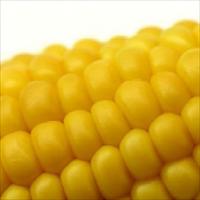SOUTHERN AFRICA: Thirty percent less maize by 2030

As global warming pushes temperatures up and droughts become more intense, the production of maize, southern Africa's staple food, could drop by as much as 30 percent in another two decades, according to a new study.
The study by a group of Stanford University researchers calls on countries to opt for long-term measures like the development of new crop varieties and investment in irrigation, which could help lessen the impact on food production more substantially than shifting planting dates.
"Adaptation is a key factor that will shape the future severity of climate change impacts on food production," said David Lobell, the lead author of the report on the study. "These adaptations will require substantial investments by farmers, governments, scientists and development organisations, all of whom face many other demands on their resources."
The impact on food security by 2030 was estimated by looking at changes in both temperature and rainfall, as large agricultural investments "typically take 15 to 30 years to realise full returns." Lobell said there was little money and time available to invest in the affected communities.
The Stanford researchers based their analysis on a synthesis of information on what poor people eat, observed relationships between historical harvests and climate variability in poor regions, and various projections of climate change by 2030 to inform investment decisions. A total of 94 crop-region combinations, including rice in South Asia and groundnuts in East Africa, were evaluated for the study.
There are drought-resistant crop varieties available in world's 1,500 genebanks, according to Luigi Guarino, Senior Science Coordinator with the Global Crop Diversity Trust. "Unfortunately, we don't know which ones they are until they are evaluated. This study [by Lobell et al] highlights how urgent it is that the contents of genebanks are evaluated and the resulting information be readily accessible to breeders in affected countries".
The Intergovernmental Panel on Climate Change has predicted that food production in Africa could halve by 2020, while a 2006 climate change study coordinated by the Centre for Environmental Economics and Policy in Africa (CEEPA), based in Pretoria, South Africa, warned that African governments and farmers should anticipate the need to change crops rather than holding on to traditional crops that often failed.
CEEPA's study report, Crop Selection: Adapting to Climate Change in Africa, strongly suggests that agricultural analyses of climate change impacts take crop selection into account. The research was part of a project implemented in 11 countries: Burkina Faso, Cameroon, Ghana, Niger and Senegal in West Africa; Egypt in North Africa; Ethiopia and Kenya in East Africa and South Africa, Zambia, and Zimbabwe in southern Africa.
Researchers discovered that African farmers adapted crop choice to climate. "There is every reason to believe that they will continue to adapt in the future," said authors Pradeep Kurukulasuriya and Robert Mendelsohn.
The study found that farmers sometimes chose to grow only a single crop, such as sorghum, cowpea or maize, but often selected a crop combination that would survive the harsh conditions in Africa, like maize-beans, cowpea-sorghum, and millet-groundnut. These combinations gave farmers more flexibility across climates than growing a single crop.
"Future research into new crops that are more suitable for higher temperatures could dramatically improve farmers' welfare, especially in hot locations such as Africa," the study noted. "Although a great deal of progress has been achieved in making existing crops more productive, future research efforts need to move towards making them more resilient to higher temperatures."
According to another study in the CEEPA project, Africa is expected to lose 4.1 percent of its cropland by 2039, and 18.4 percent is likely to have disappeared by the end of the century. Cropland loss is likely to occur at a much faster rate some parts of Africa, with northern and eastern Africa losing up to 15 percent of their current cropland area within the next 30 years or so.
A recent survey by Action Aid, a global anti-poverty agency based in South Africa, found that changes in rainfall patterns have affected the growing seasons and the type of crops planted in Malawi: long-season local maize varieties, which take longer to grow, are no longer a preferred option, and maize normally planted in November is now being planted in December.
 Back and Next - Back and Next
Back and Next - Back and Next See Also - See Also
See Also - See Also